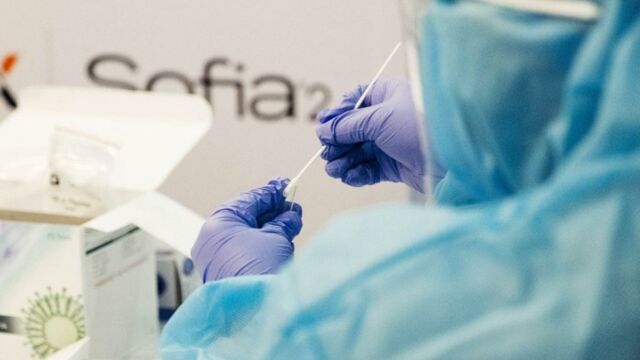COVID: This rare side effect of the virus causes hallucinations and delusions

Covid might be a respiratory disease but it can also affect the brain. A little-known side effect of the virus is post-Covid psychosis.
While Covid is a respiratory disease, it can affect nearly all parts of the body, including the brain. For a small subset of people, a Covid infection may be accompanied by post-Covid psychosis.
Discover our latest podcast
As Sarah Hellewell, Research Fellow at the Curtin University’s Perron Institute for Neurological and Translational Science, writes for The Conversation, psychosis is a condition characterised by confused thoughts, delusions, and hallucinations. People with psychosis can struggle to tell the difference between what’s real and what isn’t.
More under this adMore under this adWhat is post-Covid psychosis?
Since the beginning of the pandemic, there have been reports from all over the world of otherwise healthy people suddenly developing extreme anxiety, violent delusions, and hallucinations.
Post-Covid psychosis differs from psychosis seen in other brain illnesses and diseases.

People who develop post-Covid psychosis are usually in their 30s, 40s and 50s, and it’s their first time experiencing psychosis. There is typically no family history of psychosis. People often have insight into the way they are feeling. That is, they are able to recognise this is not normal for them, and something has shifted in the way they are thinking.
Taking into account the small number of reports to date, the start of psychosis can occur days, weeks or even months after being diagnosed with Covid.
More under this adMore under this adThe symptoms of post-Covid psychosis can vary, however there are some commonalities: people typically have problems sleeping, followed by paranoid delusions and hallucinations. Some people might hear voices, become physically and verbally aggressive, and believe that people are trying to harm them.
There are no definitive estimates as to how many people around the world have developed post-Covid sudden-onset psychosis, but the evidence so far indicates that it is rare.
More under this adMore under this adAccording to a study in The Lancet, it occurs in approximately 0.25% of Covid cases who are not hospitalised (and likely have a mild infection), and 0.89% of people who are hospitalised for Covid.
Read more:
⋙ COVID: What's the difference between Stealth Omicron and Deltacron?
⋙ COVID: Having the infection could lead to an increased risk of diabetes
⋙ COVID vaccine: Experts report rare autoimmune side effect after Pfizer jab
What causes post-Covid psychosis?
It is not well-understood what causes post-Covid psychosis. Dr. Cristopher Bartley, an immunopsychiatrist at the University of California San Francisco said:
More under this adMore under this adThere’s still a lot we don’t know about the relationship between COVID-19 and psychosis. What we do know is that there are many causes of psychosis, including infection.
Some scientists believe it could be a result of persistent inflammation in the brain, prolonged inflammatory signals in the body, or changes in blood vessels in the brain.
More under this adMore under this adBartley explained that other viruses can enter into the central nervous system, resulting in severe complications such as autoimmune encephalitis — basically, inflammation of the brain that can lead to psychosis.
Another hypothesis is the idea of autoimmune psychosis. This is where the virus basically wreaks havoc on the immune system, causing the body to start attacking itself, including the central nervous system.
More under this adMore under this adBut as Bartley said:
This COVID-19 psychosis is mysterious. Most cases seem to occur out of the blue and we don’t know why.